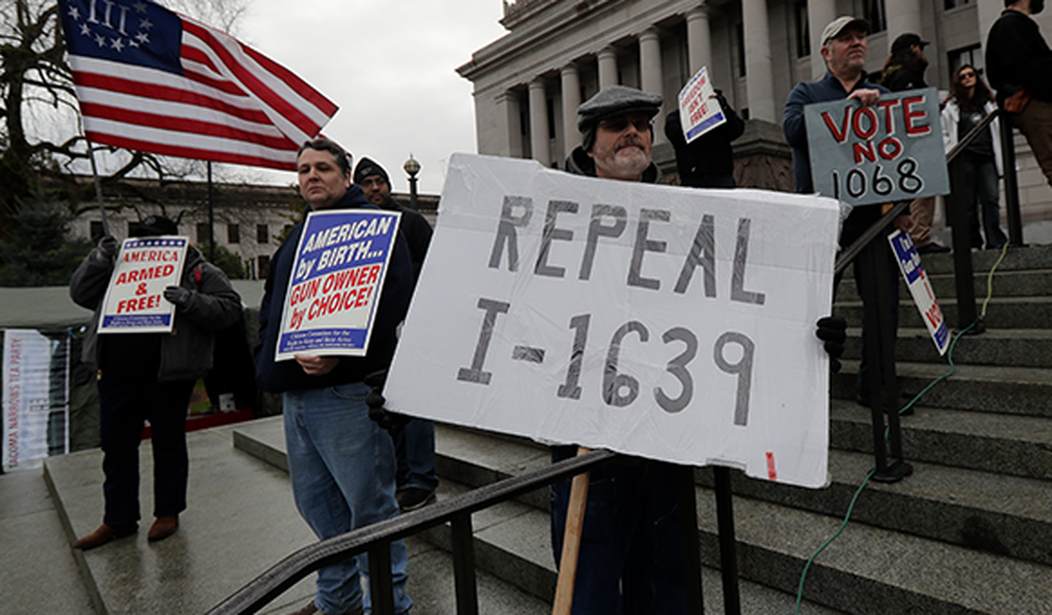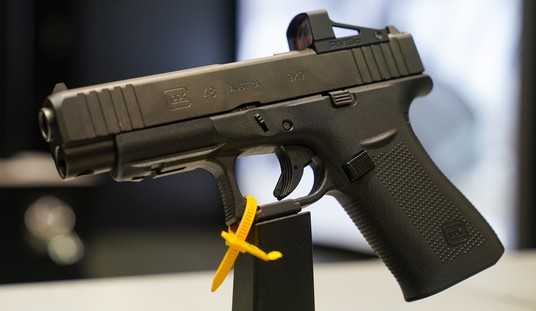If you’ve followed Second Amendment politics for longer than a minute or so, you’ve probably noticed that gun control activists and anti-gun politicians have a bit of a habit of adopting gun control laws that they have no way of enforcing. In 2013, for instance, the state of New York passed a law requiring background checks on all ammunition sales in the state; a provision that was later quietly suspended when Democrats realized opponents had been telling the truth about the unworkable nature of their demand. More recently we’ve seen Oregon’s Attorney General ask the federal courts to delay implementation of the state’s new “permit-to-purchase” system because it’s not ready for primetime and enforcement would halt all gun sales in the state, despite backers of Measure 114 promising that there would be no impact whatsoever to gun owners.
Similarly, in Washington State a provision of I-1639 that was approved by voters in 2018 requiring annual background checks on all handgun and semi-automatic rifle owners has never been enforced, at least in part because the state doesn’t have any gun registration laws in place. How do you conduct a background check on those gun owners when you’re not supposed to know who they are and you don’t have access to the NICS system to perform the checks?
Despite those logistical concerns (to say nothing of the constitutionally suspect nature of the requirement), Gov. Jay Inslee and his fellow Democrats are apparently moving ahead with plans to implement the background checks, or at least try to figure out a way to do so.
Now the governor’s office and the Washington State Patrol are working on a way to conduct annual checks, according to Hopkins and Inslee spokesperson Jaime Smith, and any needed legislation to execute the statute.
“We’re working on funding for WSP to implement a centralized system that will allow for re-checks, yes,” Smith wrote in an email. “However, to allow that system to complete a recheck beyond Washington only (i.e., catch records that originate from the feds or other states), we will need legislation and are working with folks on a licensing bill that would allow for the broader recheck.”
In a House Civil Rights and Judiciary Committee meeting on Friday, Kevin Baird, a Washington State Patrol official, told lawmakers that the agency now thinks it can conduct some form of annual checks.
“Initially the agencies determined there was neither a cost-effective nor efficient process to conduct these rechecks,” said Baird. But now that the new system is nearly complete, Baird added, “we believe we have a potential viable option to meet the intent of I-1639.”
Given that there’s no gun registration requirement in Washington State, on what basis will the state be conducting the checks? Sounds like they’ll be using information derived from commercial firearms transactions.
The Department of Licensing is tasked with keeping some of that information on file, but neither the federal government nor Washington state keeps records on who actually owns guns.
That means that existing gun data from purchase records can’t account for someone who has died or moved out of state or gotten rid of their weapons, Beau Perschbacher, legislative and policy director for the department, said earlier this year.
“You’re talking about millions of records that local law enforcement would have to search, and the cost of that was a major consideration,” he said at the time.
n September, Mike Faulk, a spokesperson for the governor’s office, also pointed to the difficulty of conducting checks through only the existing state databases, given that the FBI’s national criminal database is the main source of screening people purchasing guns.
“The governor would welcome the opportunity to work with the Legislature to identify a viable path forward to conduct these checks,” said Faulk.
From a practical standpoint, I don’t know what’s changed between September and now, but supposedly there’s now a way to get this done. Consider me skeptical. At best what the state can offer are checks on an admittedly small and incomplete number of gun owners in the state, which isn’t what the statute requires. In order to comply with the terms of I-1639 Democrats would need to pass an outright registration bill; something that wasn’t expected to be a legislative priority this year. But with Democrats already eyeing up an outright ban on so-called assault weapons a gun registration bill might even be seen as a “moderate compromise” that allows for the background check provisions of 1-1639 to be more fully enforced (at least among those who comply with the requirement to register their firearms) while letting Democrats persist in the myth that they don’t want to take your guns (or at least, don’t want you to have them).
They could also, of course, run both bills through the legislature. Democrats expanded their existing majorities in the statehouse on Election Day, so they’ve got the numbers to go big on gun control this year if they choose to do so. The legal challenges to I-1639 are still making their way through the federal judiciary, but the odds are good that those lawsuits will be joined by several others in the new year after Democrats in the state take another bite out of the right to keep and bear arms.









